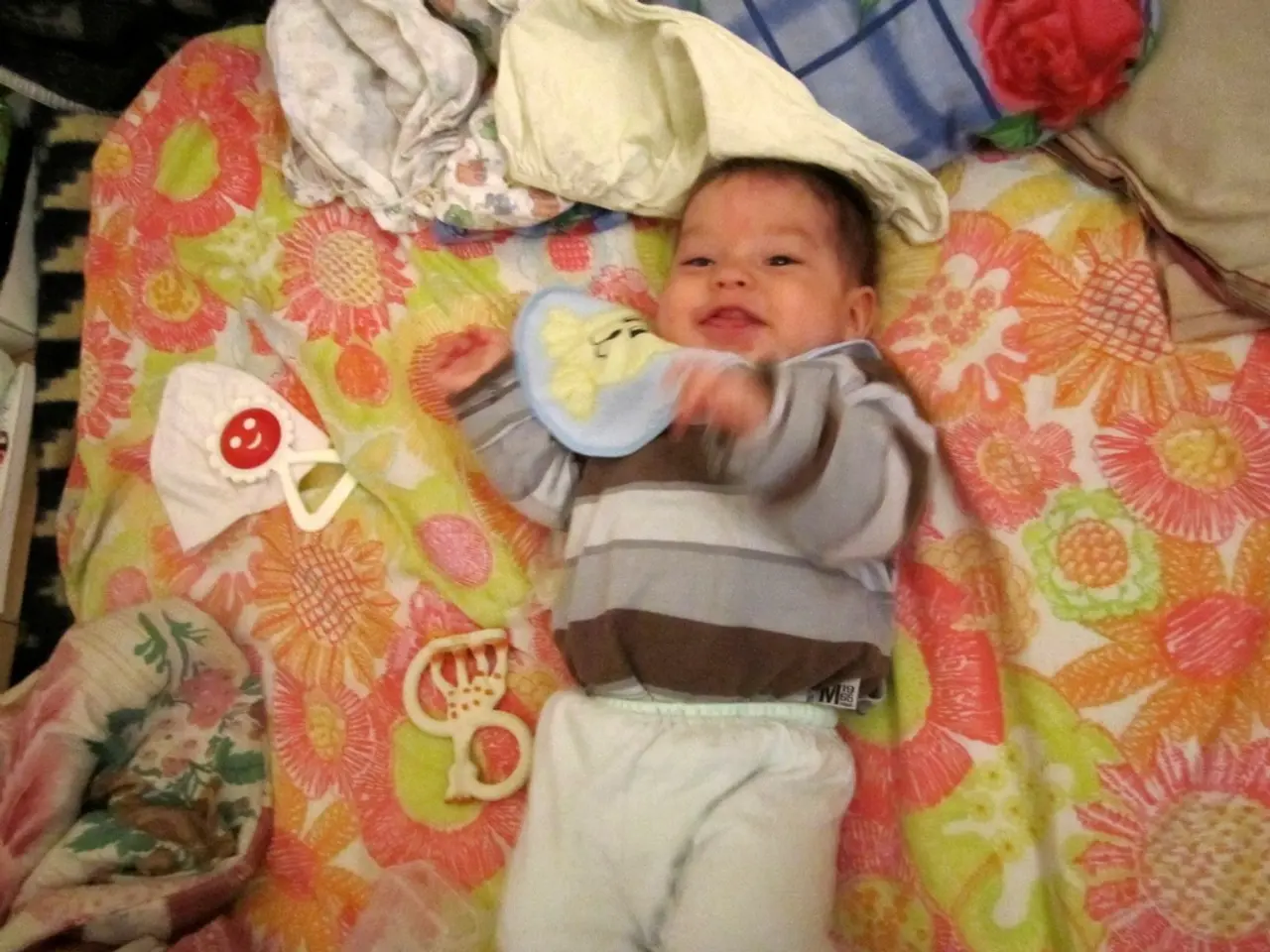Baby Development at 44 Weeks: Milestones and Child Care Guidance
At 44 weeks, your baby is entering an exciting phase of development. Here's what you can expect:
Your baby should be eating solid foods as a part of his daily diet, including 4-6 servings of milk or dairy products. During mealtimes, it's recommended to give the baby water in a cup instead of formula or milk. It's also important to brush a 44-week-old baby's teeth after giving him formula or cow milk.
Your baby's motor skills are improving. He can pick an object between his thumb and forefinger, roll a ball back to the person who rolled it, and may even start walking. Encourage his development by introducing games like Hide and Seek, Play Ball, Point Game, Patty Cake Game, and Run and Chase. A moving stool can also help him practice walking forward.
Your baby's vocabulary is growing, and he may babble more often, indicating favorite people or things. He can also respond to a one-step instruction and gesture. The Point Game can help him learn to point out things in a picture book and name them, while the Patty Cake Game can help him develop hand coordination skills.
Your baby's head is thicker than an adult's, so a minor bump or incidental fall at 44 weeks may not require medical attention. However, if he falls and gets a swelling, a cut, or a bruise on his head, or a chipped front tooth, a doctor or a dentist should be consulted, respectively.
It's important to ensure your baby's safety. Place non-skid mats all around the bathroom to prevent slipping. Equip bathroom doors with childproof handles and always close toilet seats. Always strap the baby in whenever he is sitting in a stroller, on a car seat, or on a high chair. Use the word 'no' when the baby is in a dangerous situation.
Remember, your baby's health is important. While no vaccinations are typically scheduled for a 44-week-old baby, they will need the third dose of the IPV (polio) vaccine and the final dose of the Hepatitis B vaccine between 6 to 18 months. A doctor may take a blood test if the baby shows signs of anaemia or other disorders to check his haemoglobin/lead/iron levels. If a 44-week-old baby holds his breath while throwing a tantrum, a doctor's consultation may be necessary to discuss iron supplements.
Lastly, never leave a 44-week-old baby alone in water, such as a bathtub. Enjoy this wonderful stage of your baby's life!
Note: This guide provides a general overview of a 44-week-old baby's development. Specific healthcare practices may vary depending on regional guidelines. Always consult with a healthcare provider for personalised advice.
Read also:
- Peptide YY (PYY): Exploring its Role in Appetite Suppression, Intestinal Health, and Cognitive Links
- Toddler Health: Rotavirus Signs, Origins, and Potential Complications
- Digestive issues and heart discomfort: Root causes and associated health conditions
- House Infernos: Deadly Hazards Surpassing the Flames








